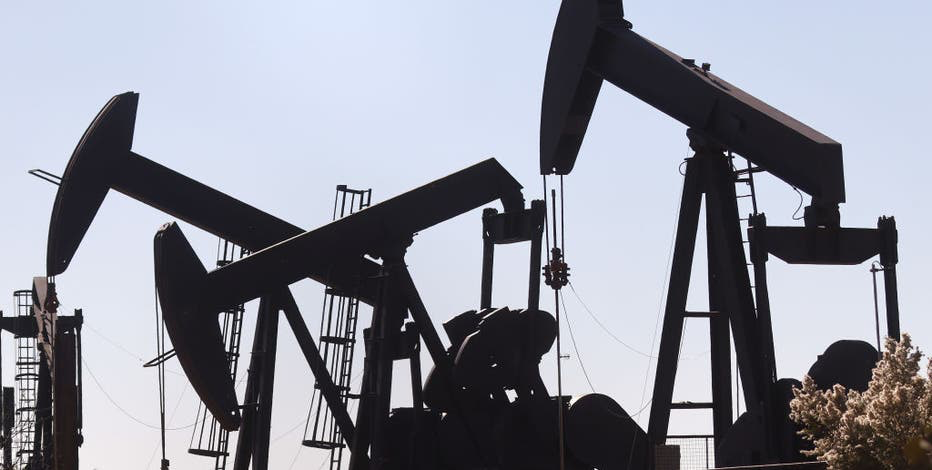Oil prices climbed higher on Thursday, extending the previous day’s sharp gains, as the Middle East faced multiple crises that threatened to disrupt the region’s oil supply.
A series of events, including a full shutdown of Libya’s largest oilfield, a deadly attack on a commemoration event in Iran, and the escalation of the Israel-Hamas war, rattled the oil market.
Libya’s Oilfield Shut Down by Protests
Local protests forced a full shutdown of production at Libya’s Sharara oilfield, which can produce up to 300,000 barrels per day, on Wednesday. The field, one of Libya’s biggest, has been a frequent target for local and broader political protests.
Libya, a member of the Organization of the Petroleum Exporting Countries (OPEC), has been struggling to restore its oil output and exports after a decade of conflict and instability..
Iran Vows Revenge After Attack on Soleimani Event
Iranian officials blamed unspecified “terrorists” and vowed revenge after nearly 100 people were killed in blasts at an event to commemorate commander Qassem Soleimani, who was killed by a U.S. drone in 2020. No group has yet claimed responsibility for the attack.
The U.S. has seen no indication Israel was behind the blasts, White House national security spokesperson John Kirby said.
The attack on Tuesday in Beirut raised fears that Iran and the U.S., which have been locked in a standoff over Iran’s nuclear program and regional influence, could confront each other again.
Israel-Hamas War Intensifies
The ongoing war between Israel and Hamas also continued to support oil prices, as the conflict entered its third month with no sign of a ceasefire.
On Tuesday, a strike killed Hamas’ deputy leader in Beirut, marking the first strike to hit the Lebanese capital in almost three months of near-daily fire between the Israeli military and Iran-backed Hezbollah that had been confined to the border region.
Shipping concerns in the Red Sea also remained after Yemen’s Iran-backed Houthis said on Wednesday they had “targeted” a container ship bound for Israel. U.S. Central Command said the militant group had fired two anti-ship ballistic missiles in the southern Red Sea the previous day.
Oil Prices Rise
Based on a report by Reuters, Brent crude rose 33 cents, or 0.42%, to $78.58 a barrel by 0101 GMT, while U.S. West Texas Intermediate crude futures rose 40 cents, or 0.55%, to $73.10.
Both benchmarks rose by around 3% to settle higher for the first time in five days on Wednesday, with WTI seeing the biggest daily percentage gain since mid-November.
Data from the American Petroleum Institute showed that U.S. crude stocks fell by 7.4 million barrels in the week ended Dec. 29, which also supported the market.
However, gasoline inventories rose about 6.9 million barrels, against forecasts for a 200,000-barrel drop, and distillate stockpiles rose more than expected.
Weekly data from the Energy Information Administration, the statistical arm of the U.S. Department of Energy, is due at 11:00 a.m. (1600 GMT) on Thursday, delayed by a day due to the New Year’s holiday on Monday.
OPEC+ Cooperation Continues
In other oil news, OPEC said on Wednesday that cooperation and dialogue within the wider OPEC+ producer alliance will continue after OPEC member Angola said it would leave the bloc last month.
The group announced a meeting for Feb. 1 to review the implementation of its latest oil output cut.
OPEC+ has been managing the oil market since 2016, aiming to balance supply and demand and support prices amid the challenges posed by the COVID-19 pandemic and the energy transition.
Oil Market Outlook
Analysts expect oil prices to remain volatile in the near term, as the Middle East situation remains uncertain and the global demand recovery depends on the pace of vaccination and the emergence of new variants of the coronavirus.
However, some experts also see signs of hope for the oil market, as the world moves towards a more sustainable and resilient energy future.
“Oil prices are likely to remain supported by the tight supply-demand balance, as well as the geopolitical risks in the Middle East,” said James Lee, an energy analyst at Refinitiv. “But we also see opportunities for oil producers and consumers to cooperate and innovate, as they seek to reduce emissions and achieve net-zero goals.”



